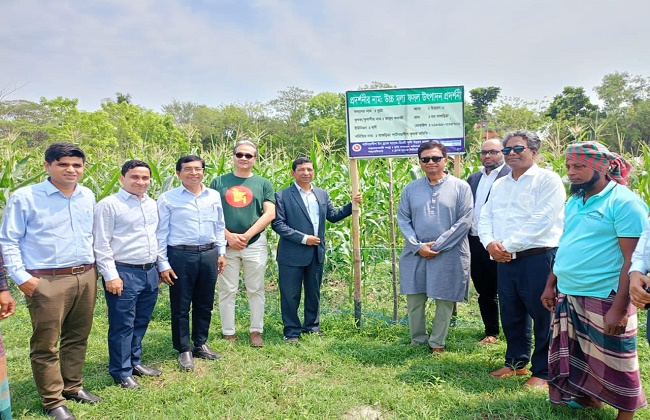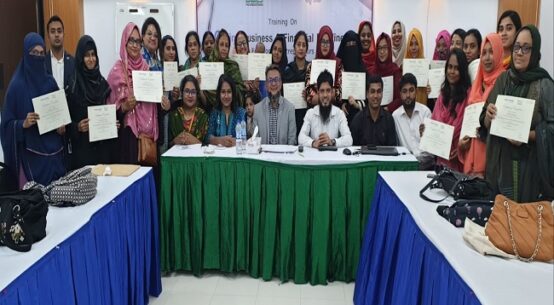
In a pioneering move, the government’s agriculture wing, in partnership with a private commercial bank, has introduced a novel method that allows farmers in Bangladesh to cultivate crops and vegetables in land that typically remained unutilized due to climate-induced elongated waterlogging.
The Department of Agricultural Extension (DAE), the largest public-sector agricultural extension service provider, launched floating bed, Dali, sac gardening, homestead gardening, rooftop gardening, etc. methods, which enabled marginalized farmers to use swampy lands for cultivation of different varieties of crops that can withstand harsh conditions.
DAE has already trained 1,230 farmers in Khulna, Gopalgonj, Madaripur, Rajbari, Faridpur, Chandpur, Sirajgonj, Tangail, Bagerhat and Natore for cultivating sunflower, bitter gourd, bottle gourd, cucumber and other cash crops and vegetables. This method has brought delight to farmers, who could not grow anything on the land as it remains inundated for eight months in a year.
The farmers now erect platforms over marshland to grow vegetables that generate year-round income, alleviating their financial hardship. The farmers also grow salinity-tolerant sunflower varieties in the coastal belt in fallow land that goes uncultivated. As the word spreads, more farmers in the coastal and river basin areas are encouraged to adopt innovative farming methods to offset the impact of climate change.
With its countrywide network and close contact with the farmer community, DAE has involved 20 cooperative groups of farmers and piloted 720 demonstration plots, providing seed, fertilizers, pesticides, etc., and machinery. Setting up 172 vermi-compost plants has increased the land’s productivity.
This climate-smart agriculture project of BRAC Bank and DAE aims to drive profound change in Bangladesh, a South Asian country most susceptible to climate change’s impact. The project’s objective is to bolster resilience within the farming community, augment agricultural yield, and alleviate climate change-induced pressures on the agriculture industry.
Md. Sabbir Hossain, Deputy Managing Director and COO of BRAC Bank, stated: “This collaboration is primed to substantially enhance farmers’ yields, enabling them to better endure the harsh realities of climate change. We are encouraged by the results in the field and the life-changing impact it brings to the smallholder farmers. We will continue to work with DAE to make farmers more prepared to fight climate change onslaught.”
Structured as an agriculture-focused Corporate Social Responsibility (CSR) endeavour, BRAC Bank has extended financial support to undertake the Agriculture Development Project. This will enable farmers to optimize their previously underutilized swampy terrains. The collaboration encourages the adoption of compost fertilizers over their chemical counterparts and emphasizes the incorporation of smart technology to counter climate change impacts


